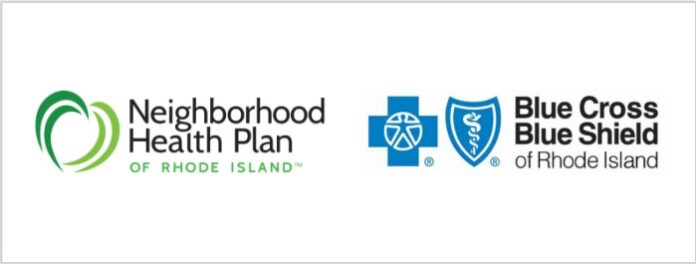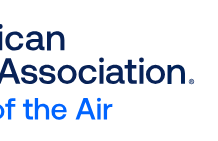
PROVIDENCE – In the wake of a devastating pandemic that continues to threaten the welfare of Rhode Island residents, and while government officials mount new efforts to protect the population from the highly infectious delta variant of COVID-19, two insurance companies have now proposed to increase premiums to unacceptable levels as part of the state-run health insurance exchange, according to a complaint filed by the state’s top prosecutor.
Rhode Island Attorney General Peter F. Neronha announced Monday that he is filing objections with the R.I. Office of Health Insurance Commissioner to the personal health insurance rate increases proposed for 2022 by Blue Cross Blue Shield of Rhode Island and Neighborhood Health Plan of Rhode Island. Neronha said he also filed complaints against small and large group plans offered by those companies as part of the exchange, as well as small group and large group plans offered outside of the exchange by UnitedHealthcare, Cigna and Tufts.
“This office is again objecting to proposed health insurance rate increases that we believe are not justified and will ultimately drive up the cost of health care for Rhode Islanders,” said Nerohna, issuing a public statement on Monday morning. “Year after year, Rhode Islanders face rising health insurance costs. Given the effects of the COVID-19 pandemic over the past year, and in light of our analysis of the current financial strength of the involved health insurers, higher rates are not warranted, nor affordable.”
Blue Cross Blue Shield of Rhode Island wants to increase the cost of plans by 3.1%, while Neighborhood Health Plan of Rhode Island is seeking an 8.5% increase to plan rates, the attorney general’s office said.
Last year, Blue Cross Blue Shield increased rates by 3.3% for individual plans during the height of the pandemic, Nerohna said, and Neighborhood Health Plan increased rates by 4.7 %.
“Many Rhode Islanders remain unemployed and are facing tax penalties for failing to carry health insurance and reeling from an unprecedented pandemic and the resulting economic consequences,” Nerohna said in a letter to the state health insurance commission. “Given the historic health disparities and obstacles to healthcare for many Rhode Islanders who will be affected by your decision, and the enormous economic and health risks all individuals who must turn to the individual market currently face, the attorney general recommends (the rate increases) be denied and no increase imposed.”
As for the small and large group markets, proposed rate increases ranged from 2.9% (Blue Cross and Blue Shield of Rhode Island) to 17.5% (United Healthcare) in the small group market, Nerohna said. The proposed rate increases are between 5.3% (Cigna) to 14.1% (United Healthcare) in the large group market, he said.
The Office of Health Insurance Commissioner is expected to issue a decision on whether to approve the rate increases near the end of August.
Since the requested rate increases fall below 10%, no public input hearing was required legally by the Office of Health Insurance Commissioner, Nerohna said.
The state enacted a health care mandate in 2020 requiring the uninsured to pay a penalty amounting to the greater of $695 per uninsured adult or 2.5% of income, with a maximum fee of $2,085 per family. For those who don’t get insurance through their jobs, the state healthcare exchange HealthSource RI connects Rhode Islanders with personal health insurance plans from Blue Cross of Rhode Island and Neighborhood Health Plan of Rhode Island. There are more than 42,000 people in Rhode Island who purchase insurance on the individual market through Blue Cross Blue Shield of Rhode Island and Neighborhood Health Plan of Rhode Island, while nearly 140,000 others rely on the small and large employer group plans that are regulated by the state.
“These are the Rhode Islanders who must turn to the individual market for health insurance, where this rate increase is sought,” Nerohna said.
Neighborhood Health Plan of Rhode Island said the rate increases were modest, and keeps costs low for consumers, especially when compared to the alternatives.
“Even with the proposed 2022 rate increase, Neighborhood will still be the most cost-effective option and will maintain current cost-sharing fees such as deductibles, co-pays and maximum out of pocket expenses for our members,” said Elizabeth McClaine, vice president of commercial products for Neighborhood Health Plan of Rhode Island, in an email to Providence Business News.
Additionally, the majority of members’ premiums will be significantly offset by increases in advanced premium tax credits, McClaine said.
“Neighborhood Health Plan of Rhode Island respects the comprehensive review process underway by the Office of the Health Insurance Commissioner as they assess rates for consumer affordability, and provider and insurer financial stability,” McClaine said. “Neighborhood offers the two lowest cost health plans on the state’s health insurance marketplace.”
Blue Cross & Blue Shield of Rhode Island said the rising rates that it submitted to the Office of the Health Insurance Commissioner are based on several factors, including the cost and number of health care services, and its members’ use of prescription drugs. The health insurance provider also said that since the start of the pandemic in 2020, it has provided more than $30 million in premium relief to members and customers.
“BCBSRI recognizes the ongoing economic challenges facing its members due to COVID-19 and took steps to limit proposed rate increases,” the company said in a statement emailed to Providence Business News. “BCBSRI’s proposed individual and small group rates are the lowest of the commercial carriers. The large group rate is among the lowest. BCBSRI also continues to waive member cost-share, or out-of-pocket costs, for care related to COVID-19. BCBSRI will continue to support our members and our customers throughout the pandemic.”
Nerohna said the company has received approval for rate increases in the individual market for 12 out of the last 14 years.
Nerohna’s office said objections are filed pursuant to his statutory authority to protect and advocate for Rhode Islanders whenever health insurance rate increases become unreasonable. Not only are the rate increases unfounded, Nerohna said, they come amid an ongoing public health crisis caused by COVID-19, which has been inflicting a disproportionate toll on the Black and Latino communities.
“The request for rate increases on the individual market are being made during the ongoing COVID-19 pandemic and come after receiving substantial rate increases just last year,” Neronha’s office said in an email. “The office further highlighted concerns of affordability among minority communities already suffering from economic and health inequities.”
Nerohna’s office said he has submitted actuarial reports to OHIC concluding that, “even before the affordability of an increase is factored in, there is not an actuarial basis” for an increase on the individual market of more than 2.3% for Blue Cross Blue Shield of Rhode Island and 5.3% for Neighborhood Health Plan of Rhode Island.
“The Office also highlighted concerns about justification for and affordability of requested rate increases for small and large group plans after health insurers receiving substantial rate increases just last year – the costs of which are ultimately borne by employers and employees,” the attorney general’s office said.
Updated story added comment from Blue Cross Blue Shield of Rhode Island.
Marc Larocque is a PBN staff writer. Contact him at Larocque@PBN.com.












